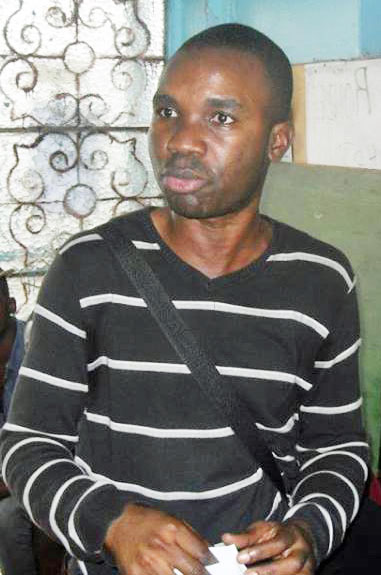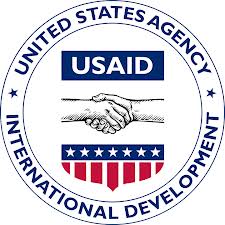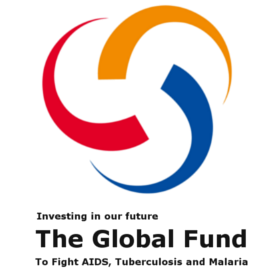A tale of murder and apathy
Colin Stewart is a 45-year journalism veteran living in Southern…

Even murder is no match for the power of institutional blindness and organizational inertia.
That seems to be true even for organizations that are pursuing a high-minded goal — in this case, halting the spread of HIV in Cameroon. You might expect such organizations would work to combat violence, but instead they have learned to tolerate the evils that accompany their attempts to do good.
That is the disheartening moral of this story of murder and apathy.
The story comes from this summer’s news reports and from a recent article by human rights worker Emmanuel Freudenthal about the dangers facing LGBT rights activists in Cameroon.
ACT 1
Seeking human rights for LGBT people can be hazardous to your health. In Freudenthal’s words about Cameroon:
Many committed activists, like Eric [Lembembe], are doing this risky work on a purely voluntary basis, so they are struggling to get by, as well as receiving daily threats of violence and sometimes facing exclusion from their families and communities.
ACT 2
Eric Lembembe is murdered. The crime leads to an international outcry. Human rights groups call for a thorough investigation of the murder and the repeal of Cameroon’s anti-homosexuality law.
ACT 3
 Local organizations that serve LGBT people in Cameroon stop work on anti-AIDS contracts from USAID and the Global Fund. They say those activities put their lives at risk, so they won’t resume the work until their international partners help them to improve security.
Local organizations that serve LGBT people in Cameroon stop work on anti-AIDS contracts from USAID and the Global Fund. They say those activities put their lives at risk, so they won’t resume the work until their international partners help them to improve security.
After Eric’s murder, Cameroon’s main LGBT NGOs … halted their work within these projects as a reaction to what they see as ‘a partnership which reduces identity organisations to a mere workforce and keeps them in insecurity and precariousness’. Indeed, to my knowledge, many of these international organisations offers ridiculously small payments for risky activities on very short-term contracts.
ACT 4
The organizations that fund anti-AIDS work among LGBT people in Cameroon do little or nothing to improve their workers’ security:
The main reaction to Eric’s murder by the large health-focused organisations was to ask for how long the implementation of their project would be suspended.
ACT 5
Local organizations resume work in Cameroon, despite the risk that they will share Eric’s fate.
EPILOGUE
Russia is the new focus of international outrage.
Neither USAID nor the Global Fund has responded to questions about their responsibility for the lives of their contract workers in Cameroon.
Related articles
- How HIV-focused groups keep homophobia alive in Cameroon (76crimes.com)
- Cameroon groups: It’s too dangerous to keep fighting AIDS (76crimes.com)
- Abandoned: Plans to keep AIDS fighters safe in Cameroon (76crimes.com)
- New threats to LGBTs in Cameroon as U.N. review nears (76crimes.com)




Upholding Equal Rights to Health Services for All in Cameroon
The Global Fund is committed to protecting and promoting human rights, which includes ensuring non-discrimination for all citizens, regardless of their sexual orientation or gender identity. We are heartened by Cameroon Health Minister Andre Mama Fouda’s public commitment this week to uphold equal rights to health services for all in Cameroon.
In order to guarantee this access, governments must protect security and ensure accountability for acts of violence. The recent tragic death in Cameroon of AIDS advocate Eric Ohena Lembembe, and other recent acts of violence against people accused of being lesbian, gay, bisexual or transgender (LGBT) have been cause for grave concern. Such violence is in itself a violation of the right to health, and can also drive key populations underground and away from the reach of life-saving health services.
Since his death and resulting requests for support from LGBT groups in Cameroon, the Global Fund Country Team has been in close communication with LGBT community leaders, meeting in person and talking frequently by phone and email. The Global Fund has promoted LGBT participation in meetings with the Principal Recipient (PR) for the $3.2 million grant, Cameroon National Association for Family Welfare (CAMNAFAW), and with UNAIDS, as well as in planning meetings that will have influence on the grant renewal process. Senior management at the Global Fund, along with leadership of UNAIDS, have recently met with government ministers from Cameroon to stress their concerns and the importance of working together to create an enabling law and policy environment. In addition, the Global Fund continues to talk with partners, including Pepfar, USAID, WHO, UNDP, the European Union Commission and France to support coordination of resources to address security needs of LGBT partner groups.
Regarding the $3.2 million grant to CAMNAFAW, the current contract will start to be reviewed end of December 2013, which is the cut-off date for performance evaluation when we enter the process of renewal for Phase 2. At that time, the grant should be designed at the country level to ensure that any human rights barriers to accessing services for key populations that are identified by the country are addressed with robust, technically sound interventions. We are working closely with the PR, and with technical partners, to support the Principal Recipient in meeting its targets for reaching key populations before the end of December. Members of our Country Team met the PR in Cameroon on Wednesday last week to review progress with the acceleration plan, which was sent to the Global Fund on July 24, 2013. The PR is committed to achieve at least 60% of planned activities before the cut-off date of December 31, 2013. Failure to make measurable progress will be taken into consideration in selecting the PR for Phase 2.
In response to the request for support and concerns about security expressed by LGBT groups, within the constraints of the current grant contract, the PR and the Secretariat have reprogrammed about Euro 25,000, collectively, for the LGBT groups that are implementing the current grant with CAMNAFAW. These funds are meant to cover administrative expenses for those groups between now and December. Additional small payments will be made for transportation and meals for outreach workers. An allowance of Euro 6000 has been set aside between now and December for two lawyers to defend individuals, charged under Cameroon’s laws criminalizing same-sex sexual relations.
As a donor that works with partners to design and implement its grants, we rely on the voices of many institutions, communities and stakeholders to ensure this collaborative process creates the most technically sound grant possible, addressing the epidemiology with strategic investments, and identifying and managing risks. We continue to be open to input and to working together in the fight against HIV, TB and Malaria.